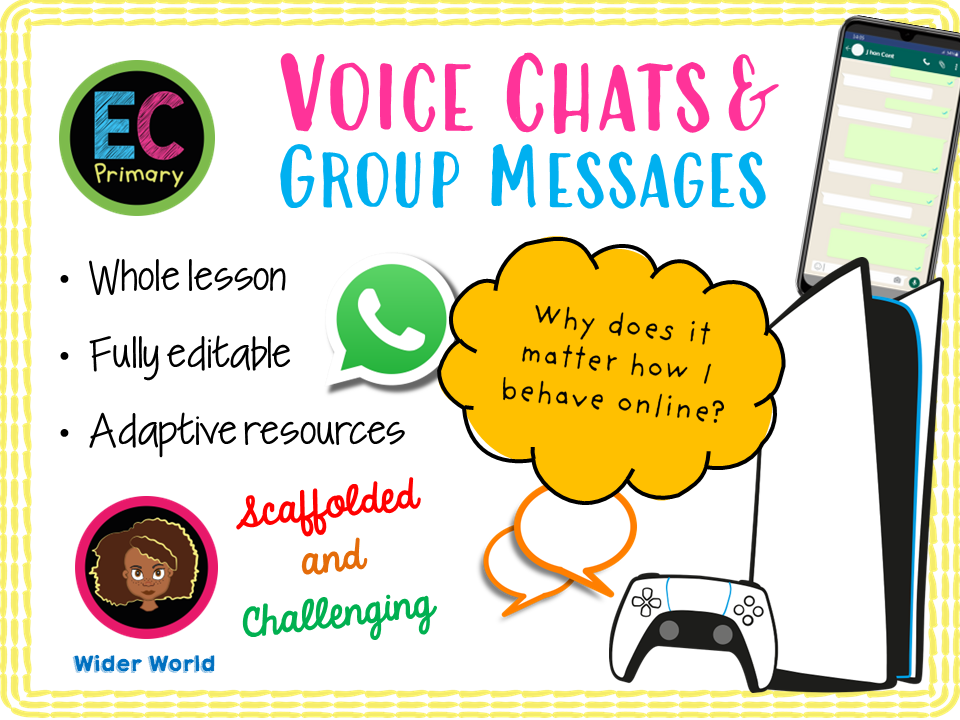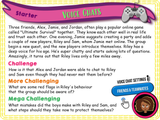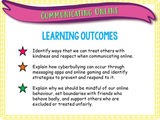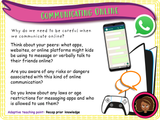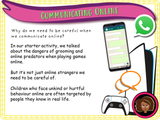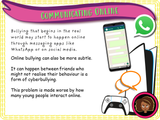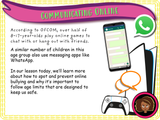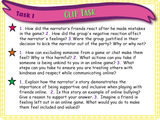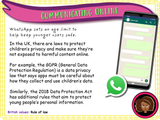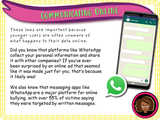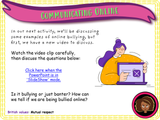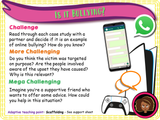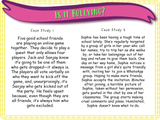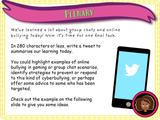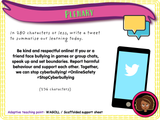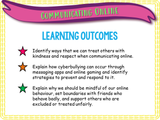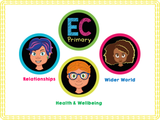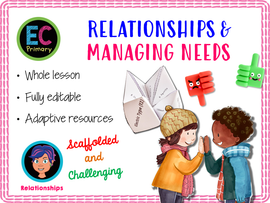Bullying, Gaming & Group Chats (Year 6)
Bullying, Gaming, and Group Chats: Why Does It Matter How I Behave Online?
In this lesson, students will reflect on the importance of treating others with kindness and respect whenever they interact with friends and classmates online. We will discuss the importance of treating our online friends with the same level of kindness and respect that we would expect to receive ourselves, both online and in real life. We will also highlight scenarios where children can unknowingly bully their friends online, by taking teasing too far or excluding friends in online gaming situations. Finally, we will discuss strategies for managing online relationships and, where necessary, setting boundaries with friends who behave badly online.
Looking to save money? Check out this new value bundle.
Bullying, Gaming, and Group Chats: Why Does It Matter How I Behave Online?
In this lesson, students will reflect on the importance of treating others with kindness and respect whenever they interact with friends and classmates online. We will discuss the importance of treating our online friends with the same level of kindness and respect that we would expect to receive ourselves, both online and in real life. We will also highlight scenarios where children can unknowingly bully their friends online, by taking teasing too far or excluding friends in online gaming situations. Finally, we will discuss strategies for managing online relationships and, where necessary, setting boundaries with friends who behave badly online.
Looking to save money? Check out this new value bundle.


